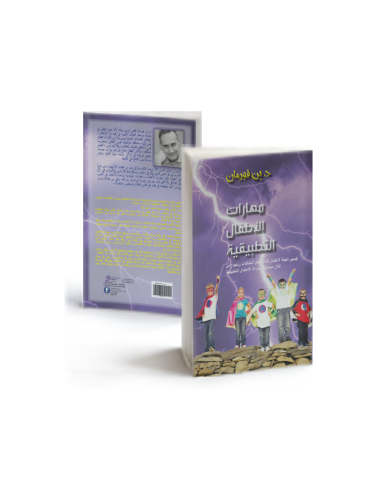The History of Christian Thought
Why would you read about the history of Christian thought? If you are Christian yourself, it helps you to understand about thinkers and the faith of the generations.
0 kg - 450 kg
Why would you read about the history of Christian thought? If you are Christian yourself, it helps you to understand about thinkers and the faith of the generations.
Did Marcel’s philosophy of secrets achieve a push to the thought? People tend to hide secrets: his origins, his destiny, his existence, he is a collection of secrets. And above of all secrets, the secret of the existence or – according to Marcel - the ontology secret. Its different from the secrets of faith, or theology secrets.
As a parent of an autistic son, as well as the director of a pediatric neuro-developmental center, Dr. Sanders draws both on his personal experience and his clinical background to guide therapists in what to say to parents and how to say it.
Autism’s core symptoms surface as problems with social interaction, restrictive interests and abnormal language development, and they often appear quite differently in various children.
Antigone begins with The two sons of Oedipus, Eteocles and Polyneices, who are fighting for the kingship of Thebes. Both men die in the battle. Their successor, Creon, decides that King Eteocles will be buried, but Polyneices, because he was leading a foreign army, will be left on the field of battle. Antigone, his sister, buries him anyway.
Antigone is caught burying Polyneices and is condemned to death. Her fiance and Creon's son, Haemon, learns about this and tries to convince Creon to change his mind. It's only then that the seer Tiresias appears. After a long discussion, he finally persuades Creon that the gods want Polyneices buried. By then it's too late Antigone has hung herself, Haemon kills himself when he finds her, and Creon's wife kills herself when she learns about her son.
This volume begins with the Renaissance and ends with Jansenism, covering- from the middle of the fifteenth to the middle of the seventeenth century. It takes in the great schools of spirituality of French Schools.
With the exception of the Salesian School, the others are divided between the great Catholic nations which filled the political stage of Europe during that period : Spain, Italy, and France.
This is a reproduction of a book published before 1923. This book may have occasional imperfections such as missing or blurred pages, poor pictures, errant marks, etc. that were either part of the original artifact, or were introduced by the scanning process.
This is a reproduction of a book published before 1923. This book may have occasional imperfections such as missing or blurred pages, poor pictures, errant marks, etc. that were either part of the original artifact, or were introduced by the scanning process.
In this clear and provocative account of the epistemology of religious experience, William P. Alston argues that the perception of God-his term for direct experiential awareness of God-makes a major contribution to the grounds of religious belief. Surveying the variety of reported direct experiences of God, Alston demonstrates that a person can be justified in holding certain beliefs about God on the basis of mystical experience.
Kids'Skills is a revolutionary solution-focused method for helping children overcome all types of emotional and behavioral difficulties. The method has been developed in Finland by a team consisting of kindergartens teachers and psychotherapists. It is simple, child-friendly, easy to learn and fun to use. A perfect method for teachers, therapists, but also for parents to use at home. The author of the book, Dr. Ben Furman, is an internationally renowned psychiatrist who has been teaching Kids'Skills in many countries around the world.











